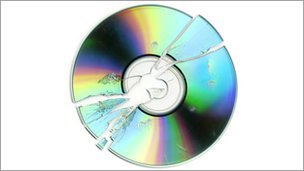It is very easy to make a PND that brings your Pandora to a grinding halt by executing a forkbomb or doing something similar that will make the device non-responsive. In fact, you don't need a PND for that, just open a terminal and type a "forkbomb smiley" if you want to try it out:
){

:& };:
It is also very easy to make a PND that destroys all your data - the system files (firmware) will survive, but all other files in your filesystem, provided you have permissions (which is always the case if it's a FAT filesystem), can be easily destroyed. "
rm -rf /" will do the job.
Moreover, it is not possible, not even theoretically, to make an anti-malware checker that can detect all malware, or even just malware of some specific kind. It will always be an arms race between malware writers and anti-malware software writers. This is a consequence of
Rice's theorem.
In a sufficiently secure OS (e.g. GNU/Linux), it is possible to ensure that malware is contained -- that is, all software, including any potential malware, can only access files and memory for which the user has permissions. One process cannot corrupt another one, files for which you don't have write permissions cannot be modified. This helps a bit, and allows you to set up a "safe sandbox" simply by creating a new user account. But of course usually you are logged in as yourself, and the files you care about are files you have write permissions for, so malware can still screw things up. There's no way around that.
So it boils down to identifying the motivations of malware writers -- if the problem is reduced to unintentional malware, it's good enough. Why do people write malware? I would assume the main reasons are profit, spying, power (e.g. a botnet), and juvenile pranks. Obviously the Pandora is not a very good target platform if you have these motivations. So that's probably the reason why there is no malware for the Pandora (at least not specifically targeted at the Pandora, e.g. by packaging a PND and uploading it to the repo).



